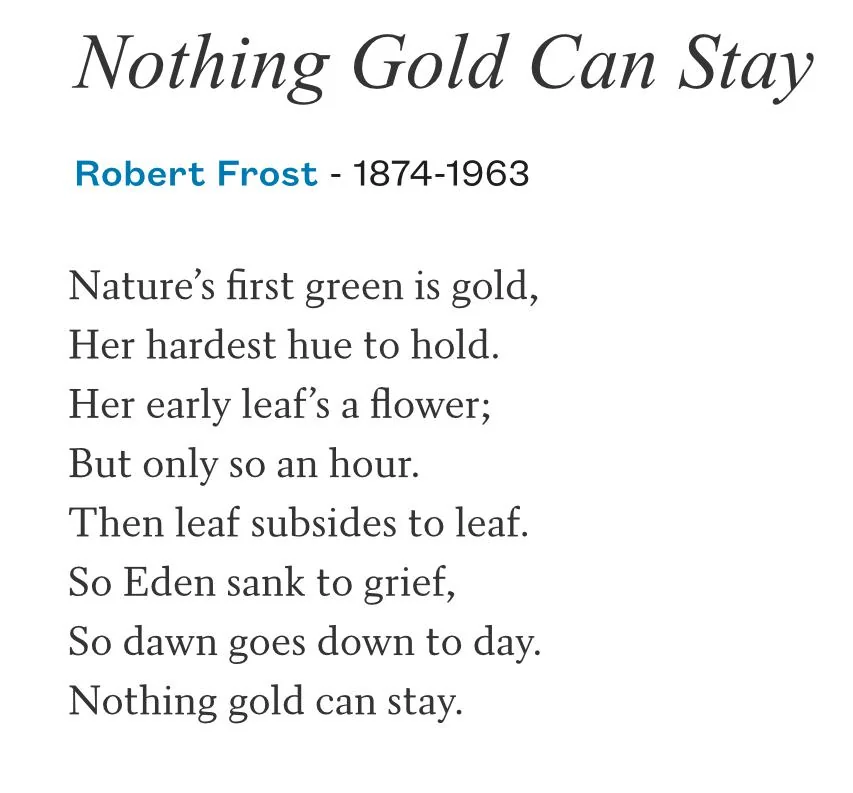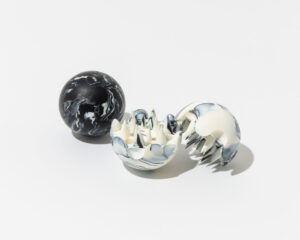Robert Frost’s “Nothing Gold Can Stay” is a masterful meditation on the transience of beauty and innocence, encapsulating profound truths within just eight lines. The poem begins with a striking metaphor, “Nature’s first green is gold,” equating the fleeting beauty of early spring with the ephemeral nature of life’s most precious moments. Frost suggests that the initial vibrancy of life, symbolized by spring’s golden-green leaves, is inevitably temporary. This speaks to the universal human experience of watching innocence, youth, and joy fade with time.
Frost’s skillful use of alliteration, such as in “her hardest hue to hold,” enhances the poem’s musicality and emphasizes the difficulty of maintaining life’s most fleeting qualities. The imagery of leaves turning green and the metaphorical “Eden” sinking to grief highlight the inevitability of loss and change, drawing on biblical symbolism to underscore the depth of human fragility.
Ultimately, “Nothing Gold Can Stay” conveys a powerful message: that beauty and innocence, though momentary, are worth cherishing. Frost’s ability to evoke such reflection on life’s impermanence makes this poem timeless, reminding readers of the delicate balance between joy and inevitable change. It remains a poignant reflection on the passing of time, resonating deeply with audiences today.
No comments yet.








